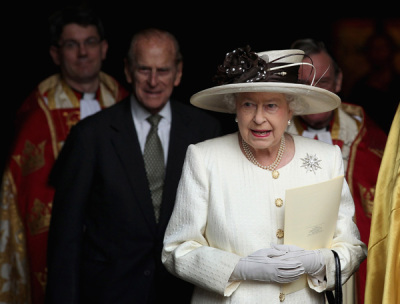The royal family and the squandering of greatness

Stories and articles about Queen Elizabeth (including this one) continue to gush weeks after her death. One reason is because her leadership style and personal character form an example we should keep before our eyes. Another, however, is the tragic way in which greatness has sometimes been squandered by members of the Queen’s larger family.
The present squabbles are petty and adolescent. However, King Charles III displayed maturity and grace when he spoke via a televised speech his love to Harry and Meghan, and wished them well in the U.S.
There is a great lesson in all this: Just because a person is born into greatness doesn’t necessarily mean he or she is actually great. Birth is an event but becoming great is a process.
Though expectations are high on royals, they have free will like all the rest of us. One cannot choose the type, character, and position of the family into which they are born, but he or she can choose the quality of life that will characterize them and their work, whether in the lofty spaces of a throne room or the suffocating innards of a back office.
Thus, Elizabeth was born into greatness and also made a definite choice to be a great person and queen. This is probably why she and Winston Churchill were friends.
Later in life she would pen a note to the old bulldog, where she wrote: “I shall always count myself fortunate that you were my prime minister at the beginning of my reign, and that I was able to receive the wise counsel and friendship which I know my father (King George VI) valued so much as well.”
In that note she shows the importance of another character trait that makes for authentic greatness in a person: teachability. Not only was she willing to learn the arts of high leadership from Churchill, but she was also willing to learn spiritual truth from a North Carolina country boy — Billy Graham, as well as other ministers.
Churchill had been born into a family that seemed crowned with greatness. He was a descendant of the high-born line of the Dukes of Marlboro. Churchill was even birthed in the ancestral home of the Marlboros — Blenheim Palace.
Winston Churchill’s father had been born into that same heritage but squandered his opportunity to be great when he chose a life of dissipation and neglect of his family. Young Winston suffered much grief from that father whose coldness and negative put-downs were constant.
I co-authored a book, God and Churchill, with Winston’s ’s great grandson, the late Jonathan Sandys. Jonathan had sweeping knowledge of the family into which Winston had been born, and its internal affairs. I was fascinated as Jonathan told me story after story of the Churchill family in Winston’s growing-up years. I was stunned at the handicaps young Winston had to endure. His route to being great was through his determination to view the obstacles as opportunities to learn and advance. He did not disengage with life and its challenges but stayed in the battle with intensity — sometimes literally.
Churchill was elevated to leadership of the entire British Navy and was blamed for a staggering First World War defeat at Gallipoli. Rather than withdrawal from public service, Churchill went to the front trenches of Europe for the rest of the horror of World War One.
And so young Princess Elizabeth, though heir to the throne, volunteered for military service in the Second World War, and worked in the maintenance of military vehicles. The woman who had the hefty crown placed on her head also knew how to change oil, repair a broken fanbelt, and get the dirt from under her fingernails.
Elizabeth II is celebrated today around the world because she manifested the attributes of a truly great person: honor, integrity, dignity, courage, commonsense, and wisdom, to name a few.
These were the choices she made.
Does the UK still need royalty? That’s for her people to decide. But the British Commonwealth and all nations need leaders who are genuinely great whether they were born into greatness or not.
After all, there was that other example in the line of British royalty — that of Edward VIII who abdicated the throne to marry Wallis Simpson. Britain was facing the most dangerous threats in its history, and Edward VIII walked away.
He had been born into greatness, but he chose not to become great himself.
Elizabeth made the choice and showed many attributes of actual greatness: honor, integrity, dignity, courage, wisdom, and exemplary character.
And Elizabeth showed us truly great humility as she gave the credit over and again to the One Who transcends her and outranks her, the Lord of Lords, Jesus Christ, the carpenter of Nazareth of Whom she spoke elegantly and passionately.
She herself chose the Bible passages that would be read at her funeral and committal, and the verses rang through the great cathedrals glorifying Christ.
And the world heard them.
The most important choice humans can make is that of what or who we worship because we all become in our character like that to which we bow the knee. Queen Elizabeth was great because of the choice of Whom she worshipped.
Long live the Queen.
Wallace B. Henley is a former pastor, daily newspaper editor, White House and Congressional aide. He served 18 years as a teaching pastor at Houston's Second Baptist Church. Henley is author or co-author of more than 25 books, including God and Churchill, co-authored with Sir Winston Churchill's great grandson, Jonathan Sandys. Henley's latest book is Who will rule the coming 'gods'? The looming spiritual crisis of artificial intelligence.



























